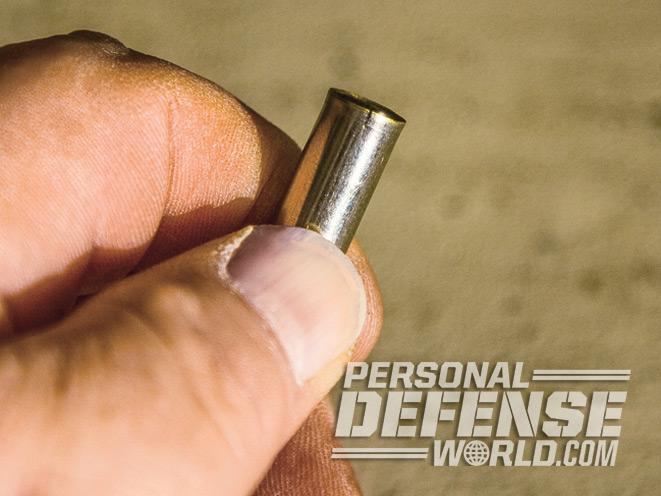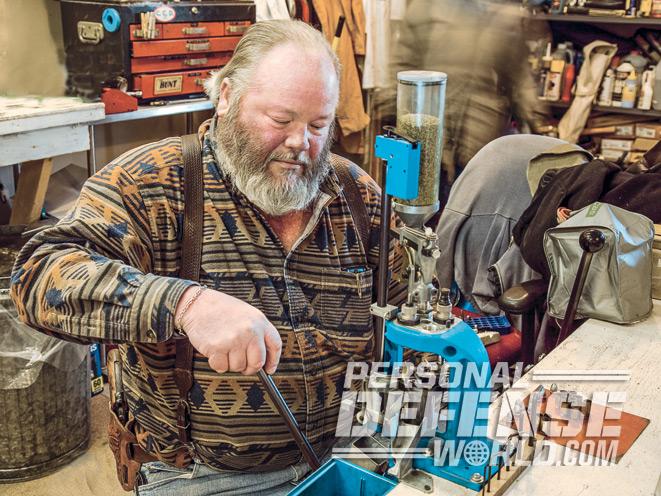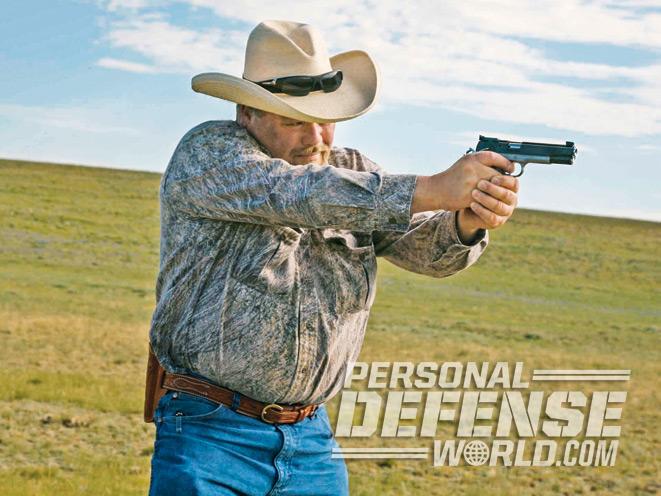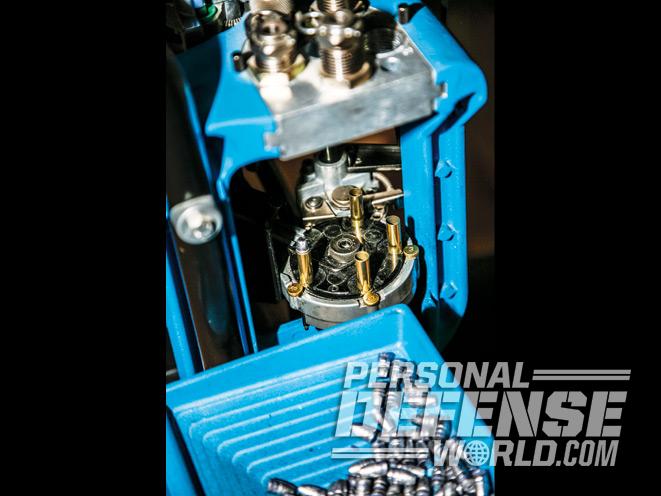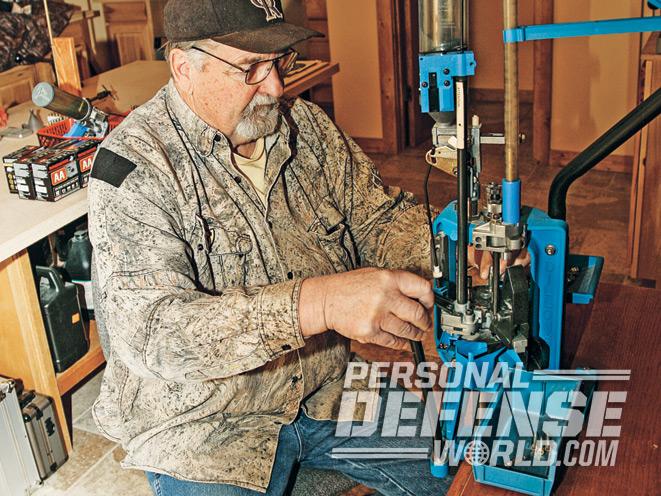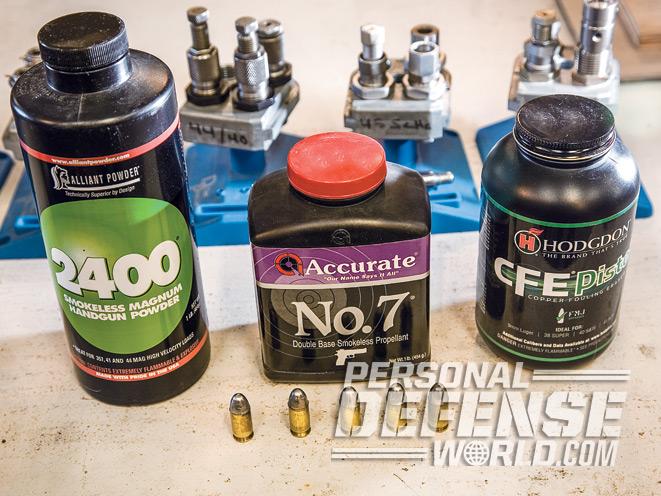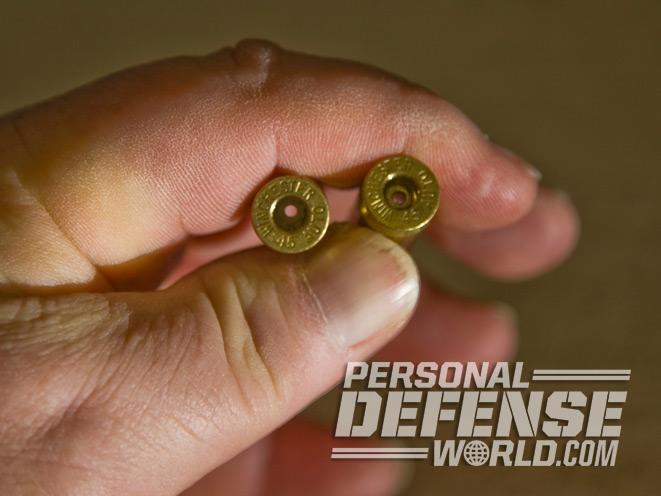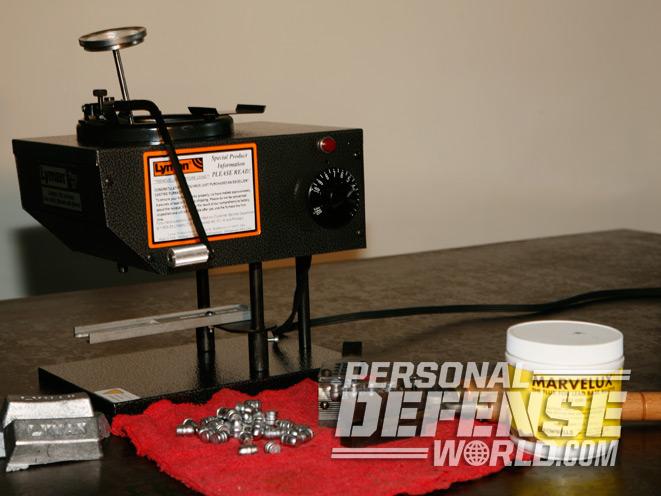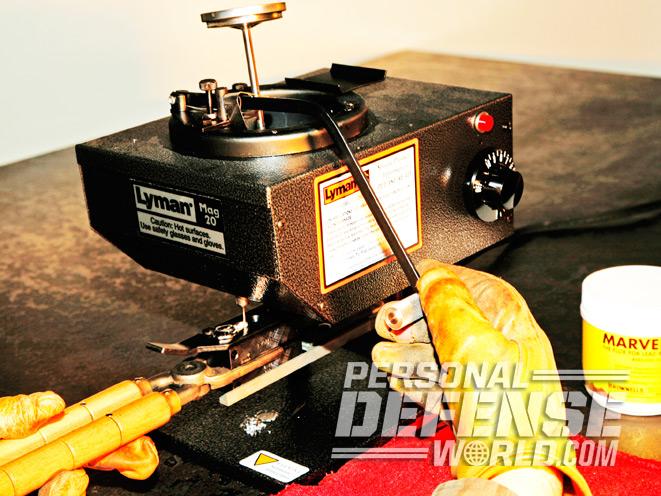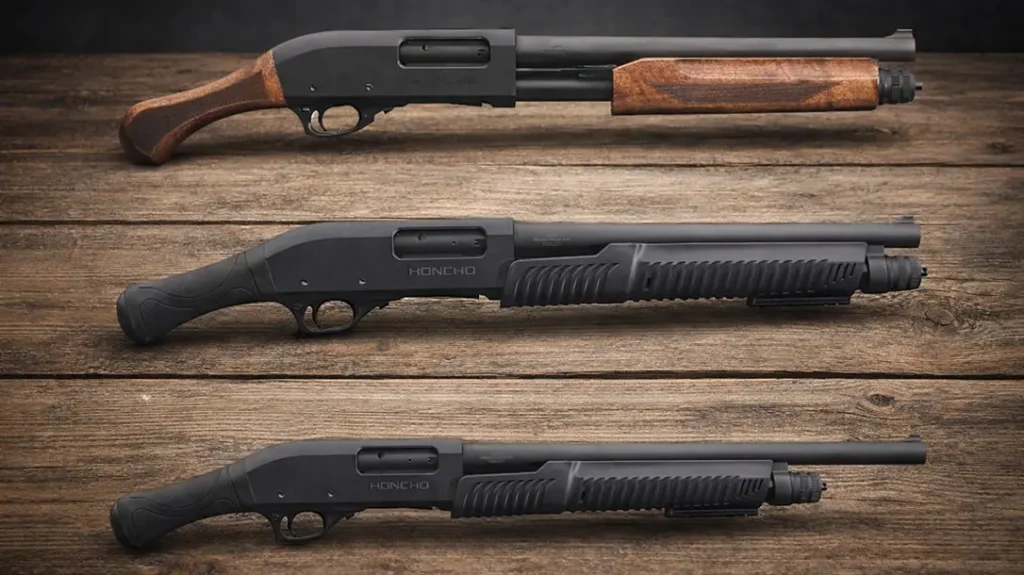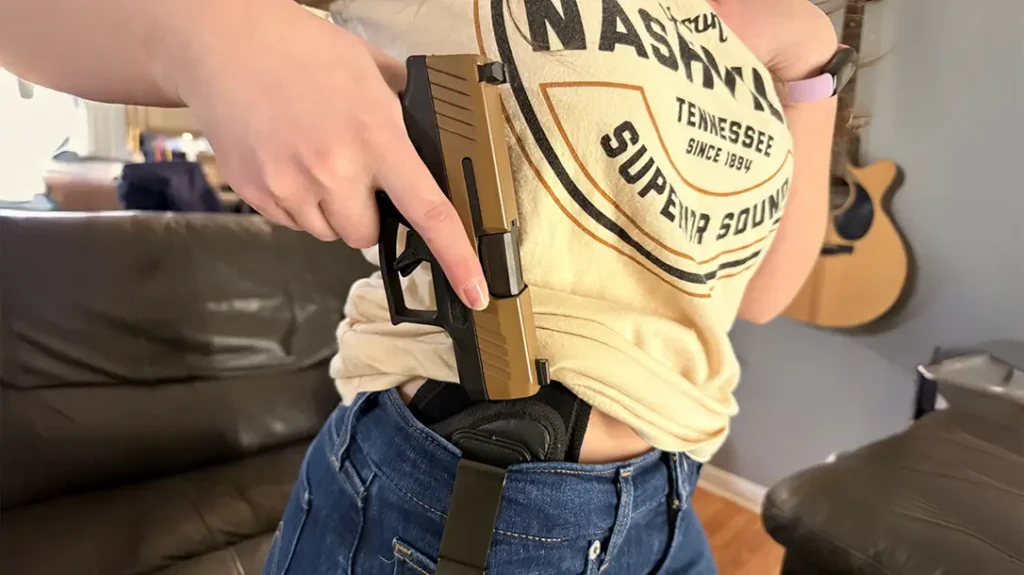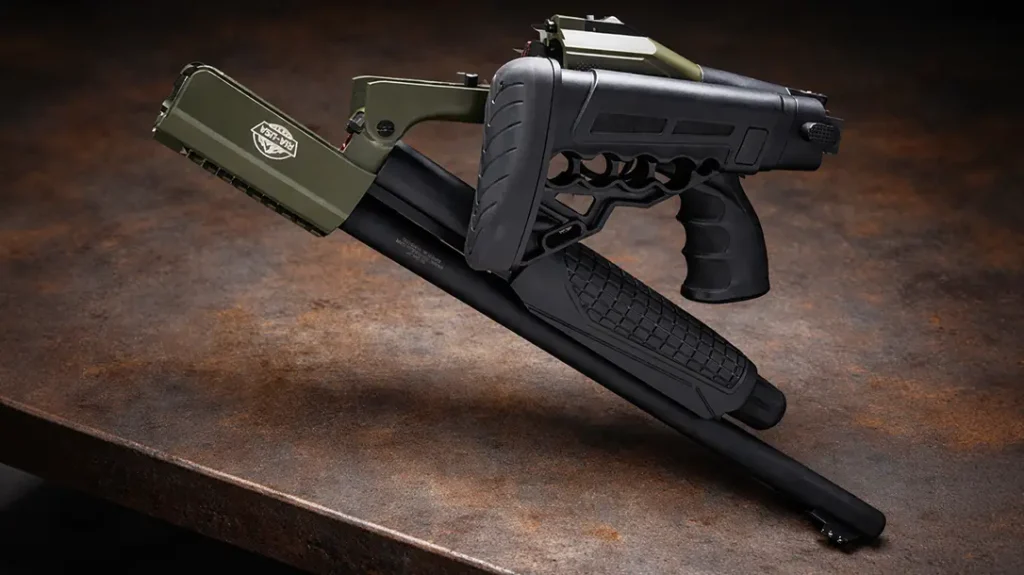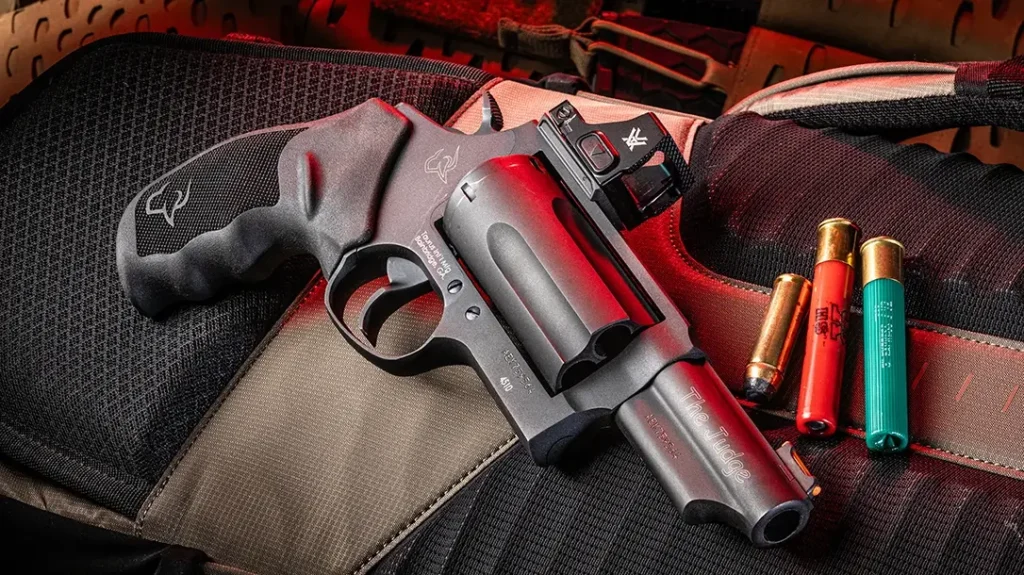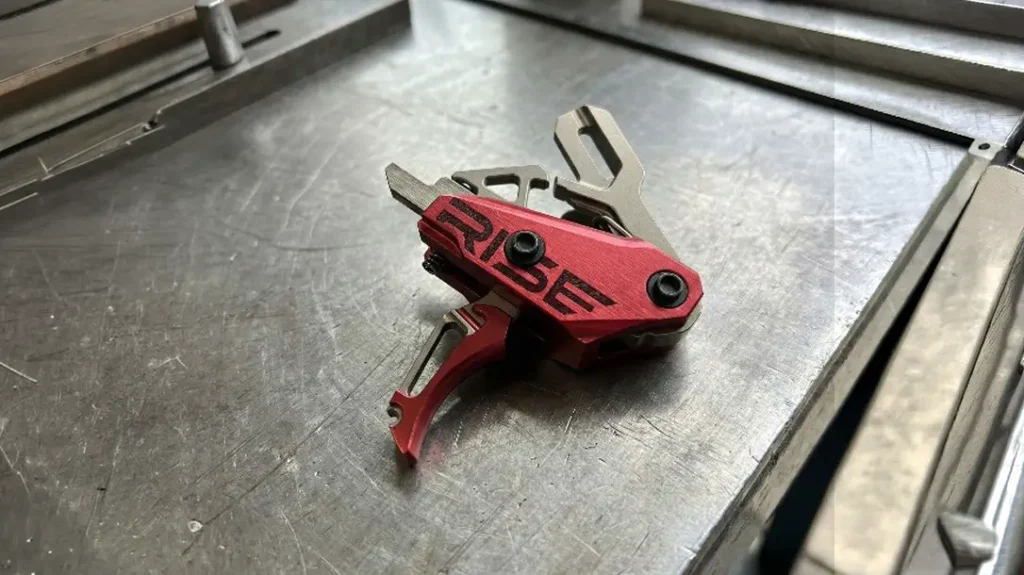When I decided to learn how to shoot a handgun some four-plus decades ago, I simply could not afford to shoot unless I rolled my own fodder. During those innocent years, I loaded all of my pistol ammunition on a single-stage RCBS Rock Chucker press and cast my bullets from an old iron pot on a Coleman stove with a hand dipper. My how things have changed.
Instead of going over the fundamentals and safety procedures of the loading process, I am going to offer five tips that will increase the performance or productivity of the handloading process, or make it more cost effective. None of these are earth-shattering epiphanies; rather, they are just some common-sense tips that I have gleaned from many years of rolling my own ammunition.
1.) Prep That Brass
Advertisement — Continue Reading Below

No other part of the handloading process will take as much of your time as brass preparation. It is a constant task from the time you pick up cases from the range until you place the loaded rounds in a container. Every time you pick up a case during the loading process you should be inspecting it for everything from proper caliber to case integrity. Here are the things you should be constantly checking: chambering, case length, overall condition, cleanliness of the case, case mouth cracks, primer pocket condition and cleanliness. If you are an accuracy nut, include separating cases by manufacturer and the number of times the case has been reloaded. Be brutal in your assessment, and cull any case that is not perfect. Remember that your safety and the safety of those around you is at stake, even for practice ammunition. Trying to get just one more loading from a failing case is false economy.
This task becomes more important as you diversify your handgun chamberings. For example, I shoot a lot of .38 Special and .357 Magnum, and ditto for .44 Special and .44 Magnum. It is a constant (and sometimes futile) battle to keep the cases separated from their brethren. Run a magnum case into the belling die of the Special cartridge and you have likely just created a scrap case.
Hairline cracks are another constant bugaboo. You may think you have done an adequate visual inspection, but when a fired case slides into your sizing die with virtually no resistance, you had better check it closely. The same holds true for primer pockets. In fact, if something feels noticeably different as you work through the loading process, stop and inspect the cartridge case closely. Something caused it to feel different, so find out what it was.
Advertisement — Continue Reading Below
2.) Go Progressive

I have waited far too long to do this, so here’s one of those “Do as I say, not as I have done” moments. Now, when I say “Go progressive,” I am not referring to the modern notion of political persuasions. I mean get a progressive reloading press just as soon as you can scrape together the coin. Once you learn how to use it, the time it will save you will more than make up for its cost, especially for those who shoot a lot. As a matter of fact, with today’s modern progressive presses, it makes no sense to have a single-stage press unless you plan on doing rifle case reforming—i.e., necking up or necking down cases.
RELATED: Handloading Tips – Lubing & Sizing Cast Bullets
Advertisement — Continue Reading Below
Even for those of us who habitually work up rifle loads by trickling in various powder charges in search of the best one, the progressive press will do that job nicely. Unless you are a constant experimenter, most of us determine the load we like and then load up a supply for our shooting needs.
All press manufacturers offer some type of progressive reloading press. I have fiddled with many of them. Any of the entry-level progressive presses cost nearly the same as a single-stage press, so it makes better sense to get the advantage of productivity.
3.) Keep It Clean
Advertisement — Continue Reading Below

If you are susceptible to being worked over by the “Clutter Gods,” you’ll need to get over it. The reloading bench is not the place for clutter. Confusion and errors go hand in hand with clutter in your workspace, and both are an anathema to high-performance ammunition.
Cases and primer pockets need to be kept clean, too. I decap and clean all of my cases in an ultrasonic cleaner and then tumble them before resizing. There are a few reasons I do that. First, clean cases do not scratch and scar reloading dies. My oldest dies date to 1971, and they are still as good as the day I bought them. Also, clean cases function more reliably in all repeating firearms. And lastly, clean primer pockets provide a solid base to seat primers, and they don’t misfire from the ash and crud that can accumulate there.
4.) Consider Casting
Advertisement — Continue Reading Below
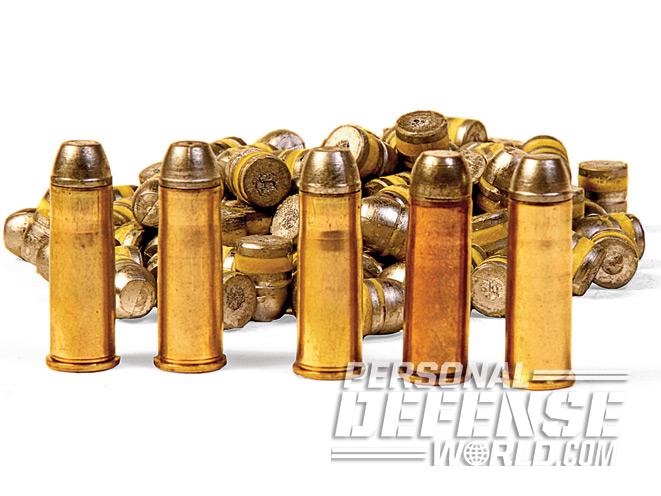
I am not a Glock shooter, but I am aware that cast bullets are not recommended in Glocks. However, for all other handguns, cast bullets offer a cost-effective alternative to jacketed bullets. Let’s face it, for practice, do you really need those high-dollar jacketed bullets to punch holes into cardboard or ring a steel gong? My 1911s have no problem digesting cast bullets, nor do my shooting buddies who shoot other semi-autos.
For those of us who shoot revolvers, there is almost no need for jacketed bullets. I’ll admit that I carry Speer Gold Dots in my J-Frame Smith & Wessons, but that’s because these loads were specifically designed for 2-inch revolvers. The rest of my rather extensive revolver collection dotes exclusively on cast wadcutters and semi-wadcutters. Heavy-for-caliber semi-wadcutters are quite capable as game-takers, and I have no reluctance whatsoever in using them in a self-defense scenario.
Advertisement — Continue Reading Below
While bullet casting requires an investment in more tooling and equipment, once it’s done your cost for bullets is determined by your ability to scrounge lead and a little electricity. With jacketed bullets costing a dollar a piece or more, cast bullets are an attractive alternative.
5.) Be Picky With Powder

Like the other technology surrounding firearms, powder technology is developing rapidly. Today, we have more brands and types of powder than ever before, and the task of choosing one can be a bit daunting. Here are some parameters to keep in mind when choosing a powder.
RELATED: Redding Reloading Equipment Releases New Premium Die Sets
For practice ammo, keep your loads light. Your gun will thank you by lasting longer, your hands and arms will thank you by not hurting as much and your shooting will improve because you can focus on the fundamentals of shooting rather than how to hang on to your pistol. Light loads usually feature fast-burning powders—and not a lot of it. Faster powders create less fouling, making cleaning a lot easier as well. All other things being equal, handloaders should choose a fine-grained powder that meters accurately through a powder measure.
As I said at the beginning, these are not earth-shattering epiphanies. Rather, they are a look at the parameters that beginning or intermediate handloaders should keep in mind to ensure their ammunition meets their needs and is safe to use when they need it most.
Top 10 Handloading Sources
Dillon Precision Products
http://www.dillonprecision.com; 800-762-3845
Forster Reloading Tools
http://www.forsterproducts.com; 815-493-6360
GSI International
http://www.gsiinternational.com
Hornady
http://www.hornady.com; 800-338-3220
Lee Precision
http://www.leeprecision.com; 262-673-3075
Lyman Products
http://www.lymanproducts.com; 800-225-9626
NEI Handtools
http://www.neihandtools.com; 915-772-0259
RCBS
http://www.rcbs.com; 800-379-1732
Redding Reloading
http://www.redding-reloading.com; 607-753-3331
Sinclair International
http://www.sinclairintl.com; 800-717-8211
